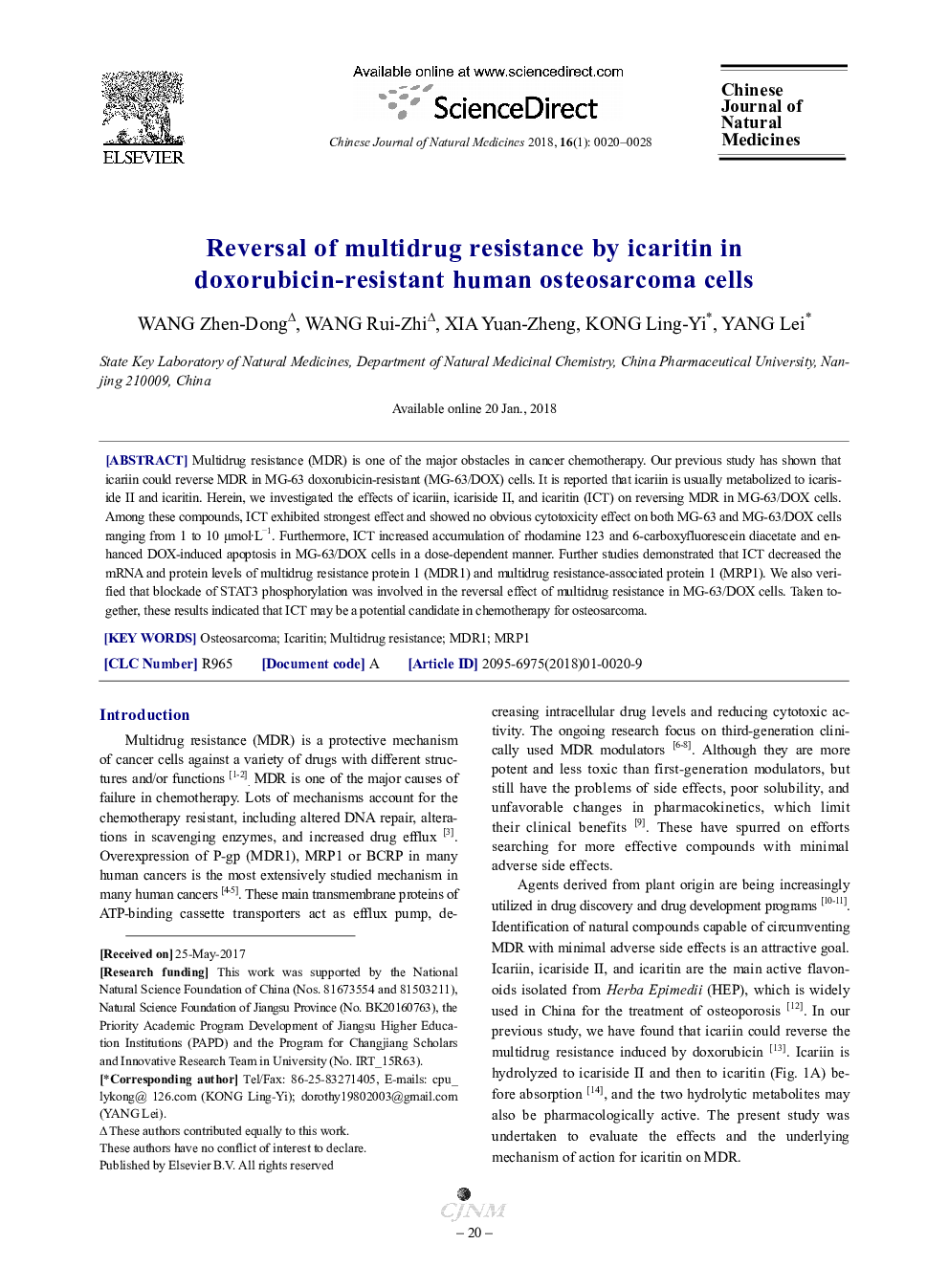| Article ID | Journal | Published Year | Pages | File Type |
|---|---|---|---|---|
| 8526942 | Chinese Journal of Natural Medicines | 2018 | 9 Pages |
Abstract
Multidrug resistance (MDR) is one of the major obstacles in cancer chemotherapy. Our previous study has shown that icariin could reverse MDR in MG-63 doxorubicin-resistant (MG-63/DOX) cells. It is reported that icariin is usually metabolized to icariside II and icaritin. Herein, we investigated the effects of icariin, icariside II, and icaritin (ICT) on reversing MDR in MG-63/DOX cells. Among these compounds, ICT exhibited strongest effect and showed no obvious cytotoxicity effect on both MG-63 and MG-63/DOX cells ranging from 1 to 10 μmol·Lâ1. Furthermore, ICT increased accumulation of rhodamine 123 and 6-carboxyfluorescein diacetate and enhanced DOX-induced apoptosis in MG-63/DOX cells in a dose-dependent manner. Further studies demonstrated that ICT decreased the mRNA and protein levels of multidrug resistance protein 1 (MDR1) and multidrug resistance-associated protein 1 (MRP1). We also verified that blockade of STAT3 phosphorylation was involved in the reversal effect of multidrug resistance in MG-63/DOX cells. Taken together, these results indicated that ICT may be a potential candidate in chemotherapy for osteosarcoma.
Related Topics
Health Sciences
Medicine and Dentistry
Complementary and Alternative Medicine
Authors
Zhen-Dong WANG, Rui-Zhi WANG, Yuan-Zheng XIA, Ling-Yi KONG, Lei YANG,
